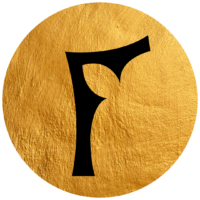Comms
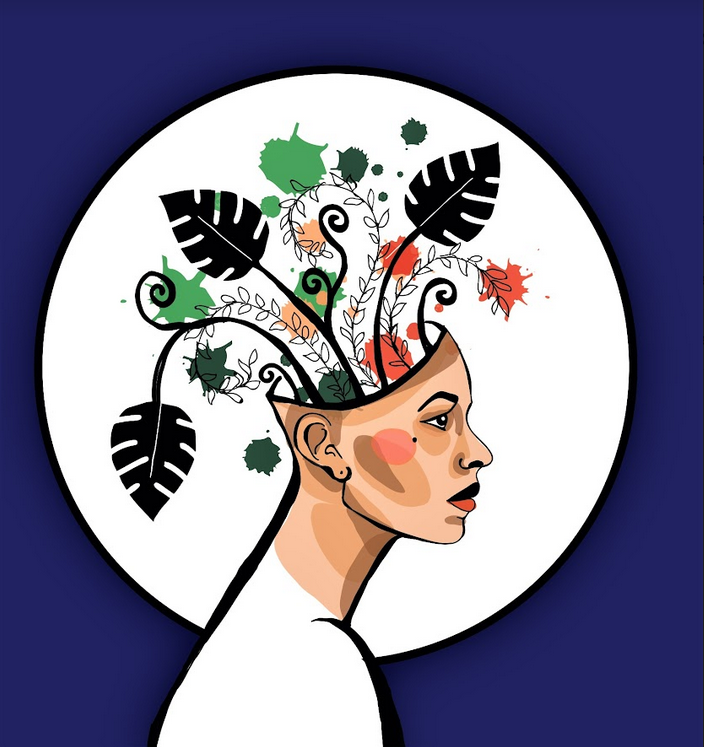
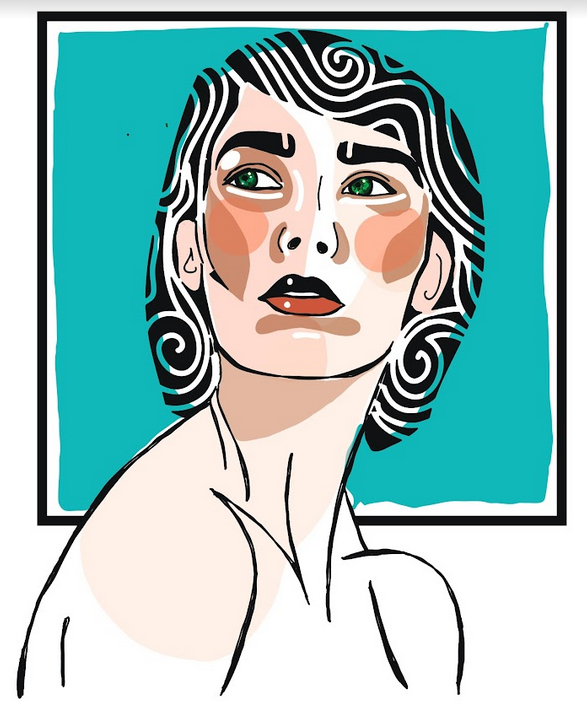
Her
Ella [Her] #10 and #12
These two belong to a series of portraits that were a part of an exploration in digital art. Each portrait dove into different states of mind. The idea was to portray specific feelings -fears, dreams,desires- and the struggle that often comes in trying to conceal them.
Ella #10 Behind an almost blank expression lies a vibrant mind where dreams flourish and ideas bloom. Creativity and imagination coming to life within herself. But the world doesn’t know. Her face, almost like a mask, conceals a richness within she’s struggling to let show.
Ella #12 She’s here… her mind is not. There’s somewhere else she longs to be. Her yearning eyes betray an untold story; she finds herself second guessing a choice, maybe even dreaming of what might have been.

By Agustina Papu
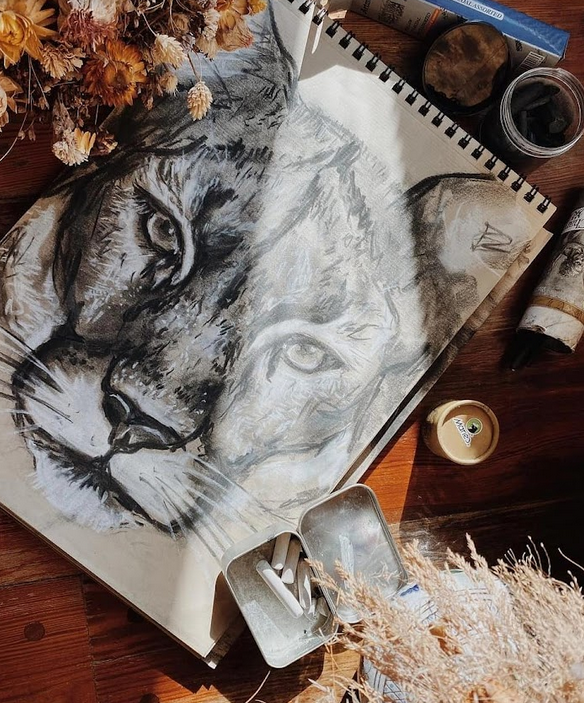
Wildlife #7
An important part of my commission work is based on animal portraits. My journey in this direction actually began with a challenge: every day, for over six months, I drew a portrait of a different species. The idea was to strip away any generic memories and focus on the particularities of each individual. It allowed me to explore the immense biodiversity and in the process strengthened my fascination with animal wildlife. I start every portrait with the eyes, and don’t carry on until I feel I have grasped the life, depth, and a sense of connection…a piercing look that forces the viewer to engage.

By Agustina Papu
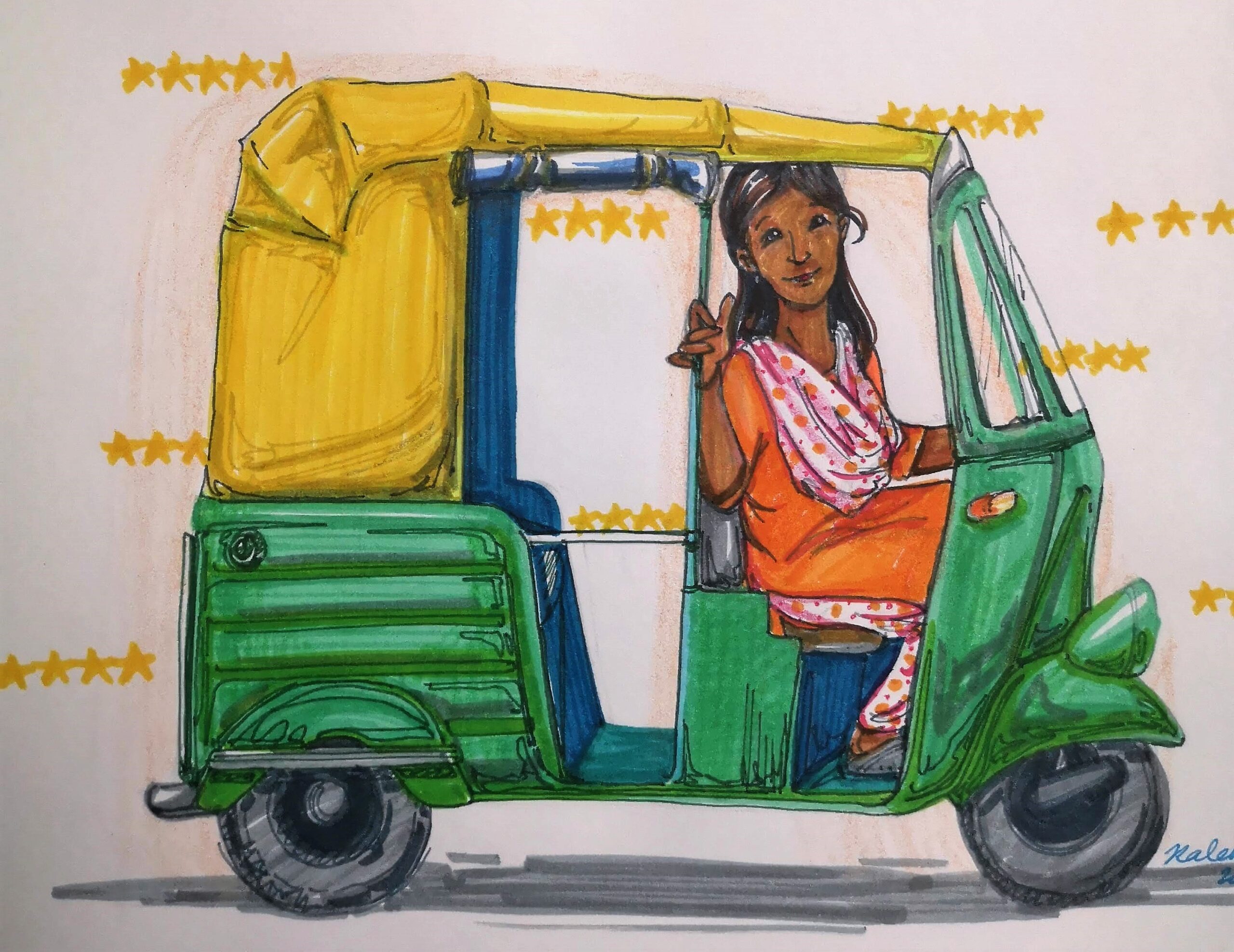
Autorickshaw
Although gender barrier in workspace continues to be challenged, some areas are perceived as “male dominated” spaces of occupation. Once such is ride-sharing services- especially in South Asia. My sketch depicts a female auto-rickshaw driver.
Her position in the drivers’ seat pushes the envelope of gender-specific work further. Widely used mode of public transport – the autorickshaw – in turn symbolizes a gendered space in the public eye. I wish to normalize gender equity in diverse workspaces with depictions such as these.
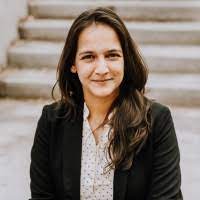
By Durga Kale
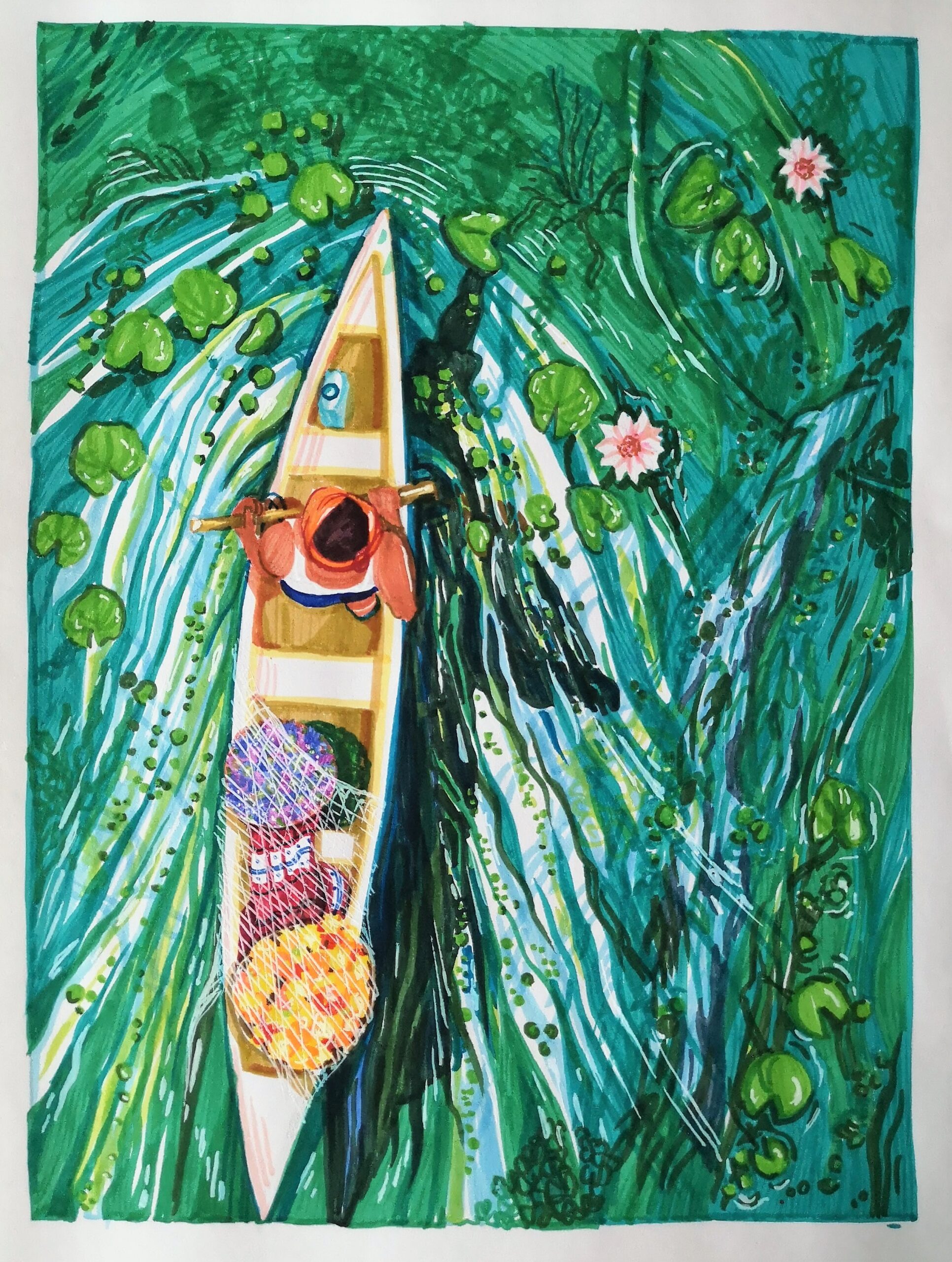
Boatman
Although the aesthetics of this image was the focus for my exercise in depicting the boatman, I wish to reflect on the human-nature relationship in a broad sense. The subject of this sketch is a ferryman who transports fresh flowers from a small hamlet to the weekly market in a nearby town. This individual happens to be one of the respondents for my fieldwork in the area, and I was able to observe his routine. The respect for natural elements underscored his seemingly mundane practices. He would pluck select flowers rather than all the flowers, “leaving some for the plant itself” – in his words. He would use a boat with an oar instead of a motorized boat, so as not to disturb the plant and aquatic life in the small lake and rivulet that he would cross.
I aim to present this frozen frame as encapsulating bio-conscious thought processes.

By Durga Kale
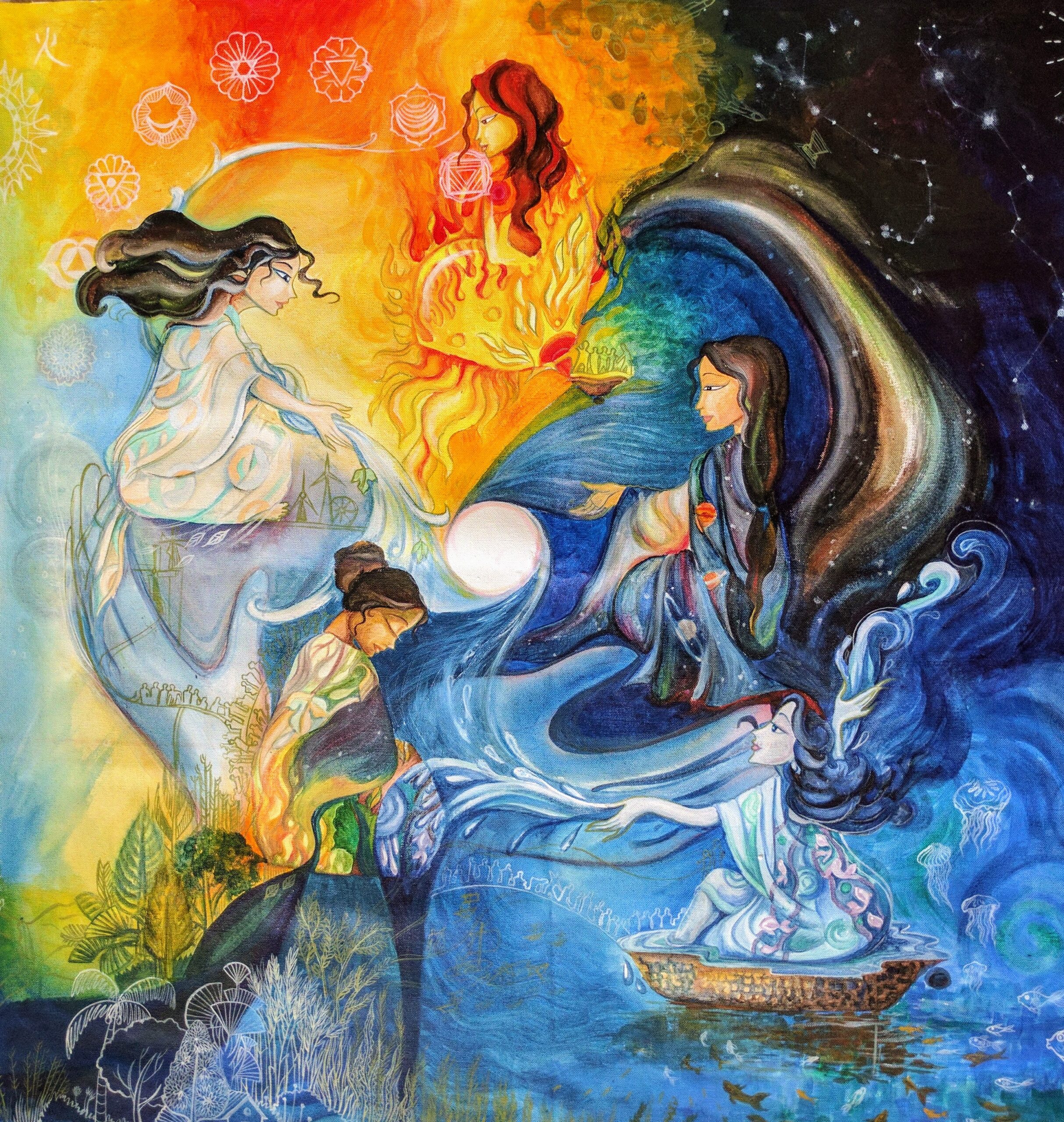
Five Elements
A rather complex composition in this series is that of five elements. I personify the elements – Earth, Wind, Fire, Space and Water (clock-wise in the painting). The latent thought is to reflect on the gradual “taming” of the elements by humans. At the outset, the painting looks as if it is a celebration of color and splendor of the five elements. However, tiny human figures creep around each personified element. Man-made objects such as lamps, satellites, plastic, etcetera, continue to mark their presence around the elements presented as women.
A detailed shot of the Earth illustrates the point further, where humans have taken over her, and she is bent over in exasperation. Other elements offer help with outstretched hands.

By Durga Kale
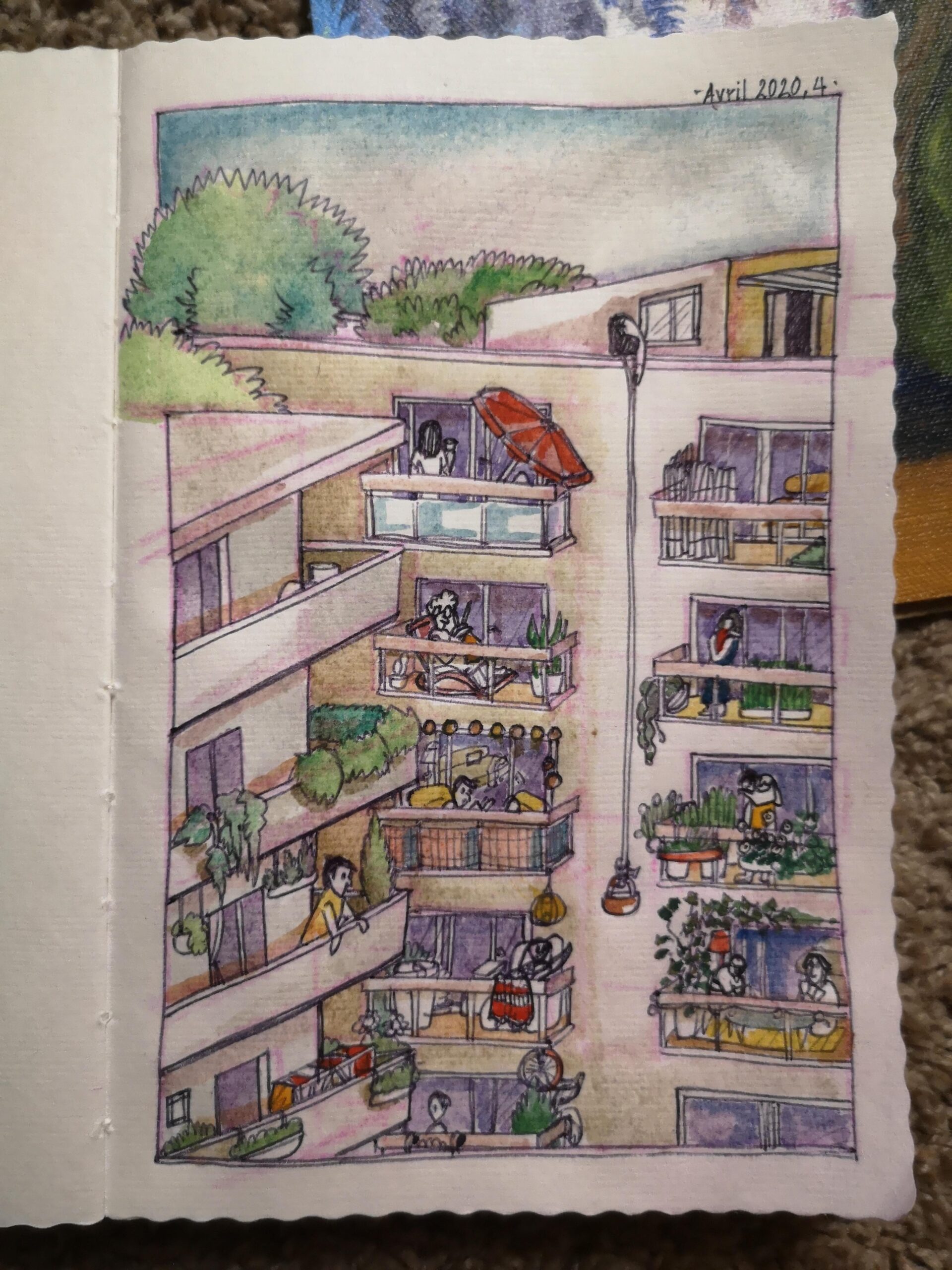
Lockdown
A page from my observations around me during the pandemic. I was pleasantly surprised at the sudden blooming of human connection. Balcony - a space that is private, but open to slight public gaze – became the stage for whatever little human contact one could have in the lockdown. The balconies, which would be bare, deserted, and mere appendages to the modern high-rises, became spaces of relaxation, chit-chat, garden, workout studios, and so much more. More than an extension of home, these spaces became an extension of self – a place to relax, rewind, and revive human contact.

By Durga Kale
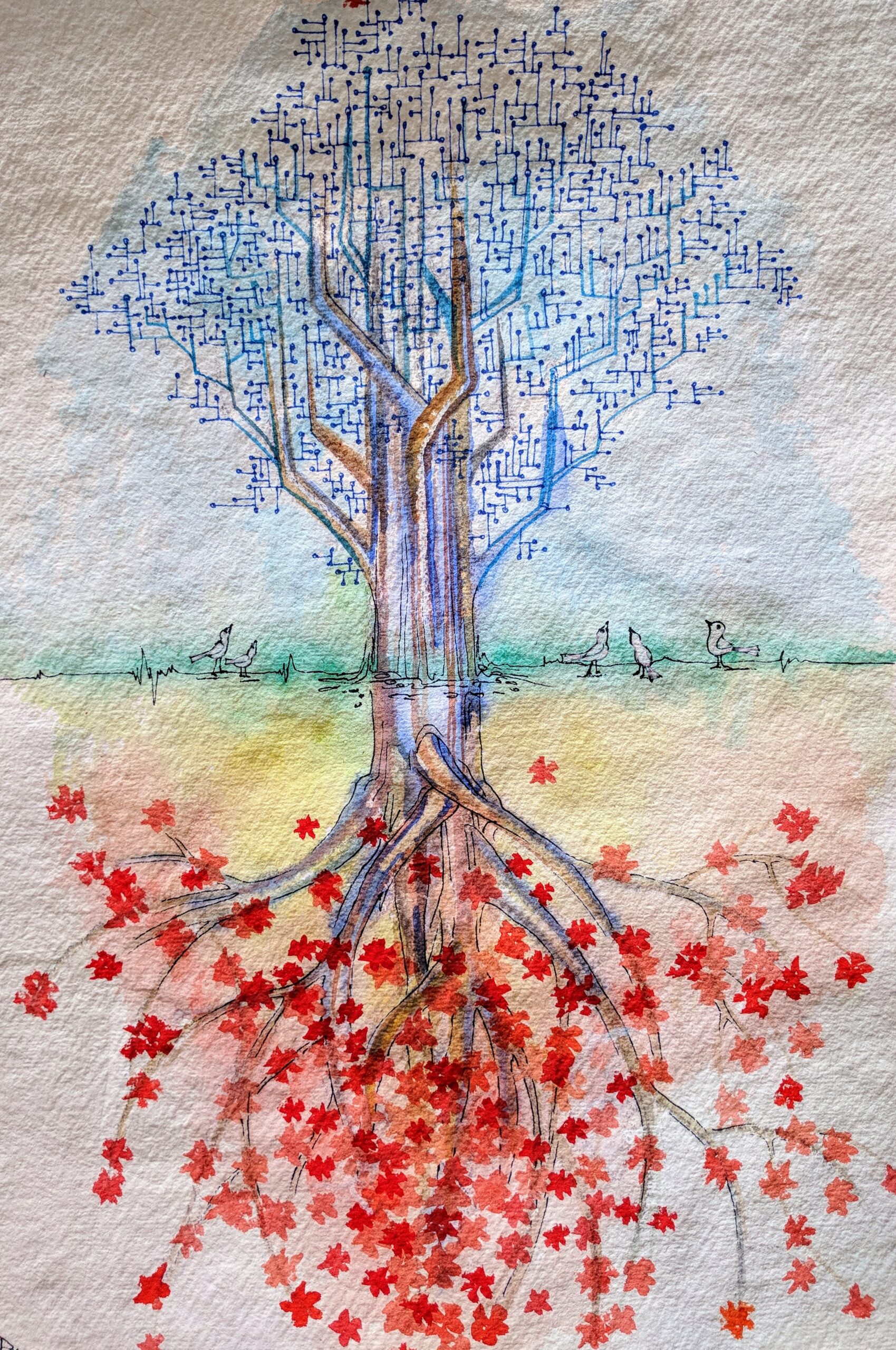
Mirror Trees
The tree sketch reflects on what society prioritizes, and probably loses sight of the equally important counterparts.
Here a tree composed of circuits makes for a visual above-ground, while the “real” essence of flowering free remains buried underground/veiled from view. The confused birds wonder at what the tree should have actually looked like, and so on.

By Durga Kale
